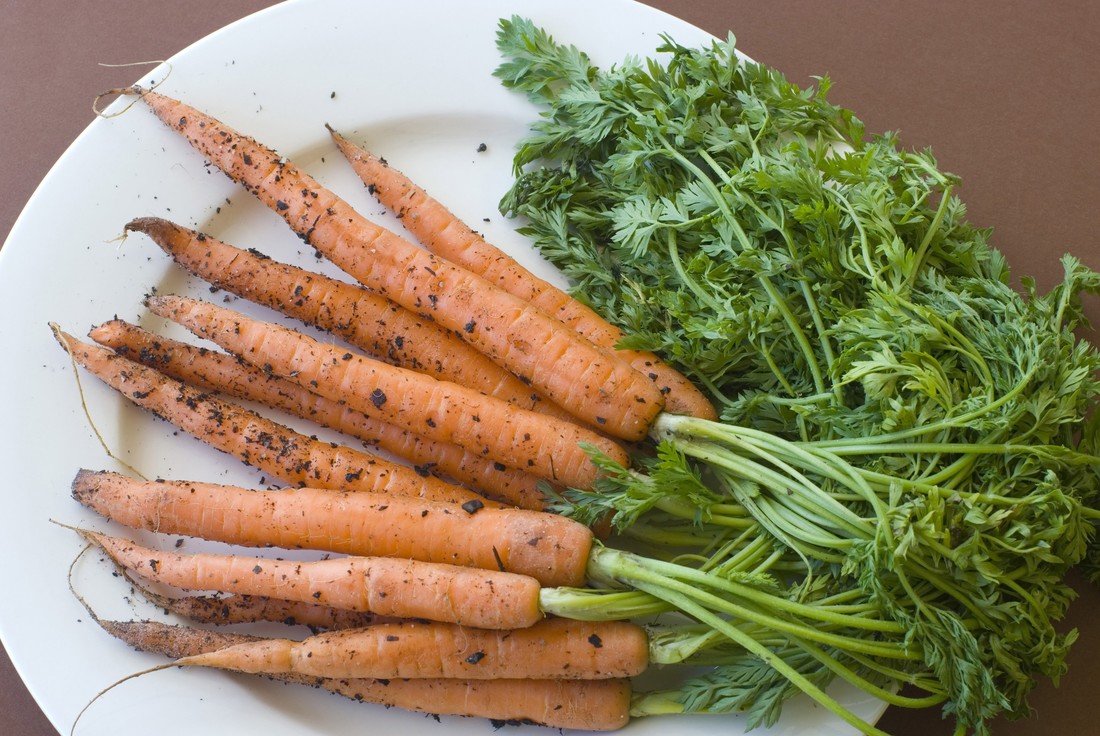|
I am often asked a series of questions about organic food, versus local food, versus conventional food. Do I buy all organic? How can I afford to buy organic? What is better local or organic? Is there really a difference? Unfortunately, pesticides are very loosely regulated in the United States. They are linked to terrible health consequences including cancer, birth defects, hormone disruptions, digestive disorders, nervous system disorders and more. Not to mention the havoc they wreak on the surrounding environment, as the chemicals leak into our ground, water and air.
So to answer the above questions, my quickest answer is this. First buy local from farmers you know practice sustainable farming, then buy as much organic as you can, then make sacrifices if need be. Organic plants are higher in nutrients, such as phytochemicals, which are only produced in plants that have to protect themselves from pesty invaders. (It is a defense mechanism that is needed in the natural world where pesticides, fungicides and herbicides are not present). These phytochemicals are not needed for any reason by the plant, except to protect it. However, they have been shown to have great benefit for humans in fighting disease. Organic produce contains these, conventional does not. You can chat with your local farmer to find out what there methods are and if they practice organic style farming or not. Since the organic seal is an expensive and time consuming seal to obtain, not all local farmers may have it, even if they technically are growing organic produce. That being said, when push comes to shove, and all you can do is run to the grocery store down the street, and your counting your pennies...which foods are most important to buy organic? Below I have listed the Environmental Working Groups list of top 12 foods with the most amount of pesticides found which should be bought organic and the top 15 foods with the least amount of pesticides which are safer to buy non-organic. EWG's Dirty Dozen- Foods to be sure you buy organic 1. STRAWBERRIES 2. SPINACH 3. NECTARINES 4. APPLES 5. PEACHES 6. PEARS 7. CHERRIES 8. GRAPES 9. CELERY 10. TOMATOES 11. SWEET BELL PEPPERS 12. POTATOES +1. HOT PEPPERS EWG's Clean Fifteen- Foods you can skimp on buying organic if need be 1. Sweet Corn (though I would argue with this as far as GMO's are concerned) 2. Avocado 3. Pineapple 4. Cabbage 5. Onions 6. Sweet Peas frozen 7. Papayas 8. Asparagus 9. Mangoes 10. Eggplant 11. Honeydew 12. Kiwi 13. Cantaloupe 14. Cauliflower 15. Grapefruit I am also pretty strict on the type of animal products I invite into my diet for the same reasons listed above. The nutrient content is richer in animals humanely raised without pesticide and GMO rich feed. It is also light-years better for our environment. Again, I think the best advice is to buy as much organic as you can. Local, sustainably grown and raised is the best. Then go from there. And remember it is an investment in your health, and the health of generations to come. I whole-heartedly believe that we have to put our best foot forward to fight the environmental and health injustices that are at our forefront today. We are simply not living a sustainable lifestyle, something has got to give! With the warmest regards, Ashton References http://www.ewg.org/ http://www.eatingwell.com/food_news_origins/organic_natural/dirty_dozen_plus_14_foods_you_should_buy_organic http://www.phytochemicals.info/
1 Comment
|
AuthorWrite something about yourself. No need to be fancy, just an overview. Archives
January 2018
Categories |

 RSS Feed
RSS Feed
